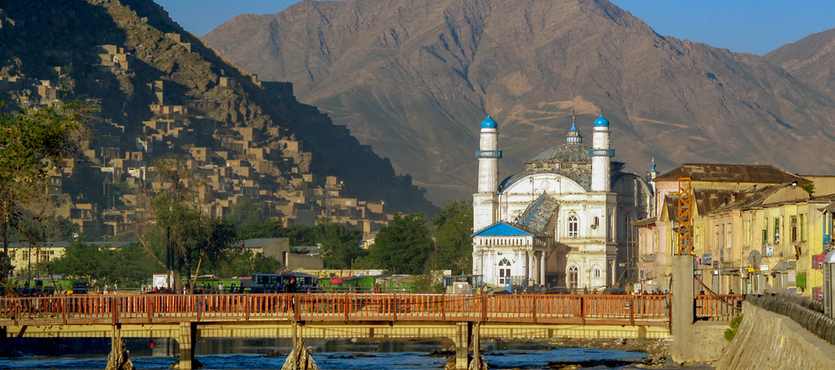Over a dozen embassy security guards from Nepal are infected with coronavirus, causing some panic among embassy workers.
Contractors in Afghanistan are not new. In 2015, there were four times as many contractors in Afghanistan as regular servicemembers. Many of these individuals are Nepalese Gurkhas, whose ancestors fought alongside British and Indian forces in World War II as well as some conflicts in the 1960s.
The Defense Base Act applies to such individuals, but many of them are unaware of their rights.
Afghanistan: The Early Years
The current war has its roots in the 1990 Persian Gulf War. Immediately before this conflict, when Iraqi strongman Saddam Hussein occupied Kuwait and threatened Saudi Arabia, wealthy Saudi citizen Osama bin Laden volunteered his private army to the King. When the king refused this offer, bin Laden warned Saudis that once the Americans arrived, they would never leave. Bin Laden then angrily took his army to Afghanistan, where he began plotting revenge against the Americans for what he considered an invasion of his homeland.
Throughout the 1990s, this private army, Al Qeada, carried out a series of escalating terrorist attacks throughout the world. Aside from a few cruise missile strikes and some strong words, the United States did not respond.
Bin Laden’s increasing boldness and expertise eventually lead to the New York City and Washington, D.C. 9/11 attacks. The U.S. invaded Afghanistan a short time later, looking to oust the Taliban, a radical Muslim sect whose leaders provided extensive aid and comfort to bin Laden over the previous decade.
By December 2001, the United States and the patchwork Northern Alliance had forced Taliban fighters from their last Kabul stronghold. The Americans picked Hamid Karzai, an exile living in Pakistan, as Afghanistan’s interim president.
Over the next few years, Karzai and his allies failed to take advantage of that early momentum. Violence escalated, prompting NATO to assume Kabul security duties in 2003.
Along with scheduled elections in 2004, voters were asked to consider a radical new constitution. At least, the constitution was radical to most Afghans. This document eliminated the prime minister position, designated Dari and Pashto as the country’s official languages, and guaranteed equality for women.
Shortly thereafter, Afghanistan held parliamentary elections for the first time in three decades. Nevertheless, by 2008, the situation had deteriorated considerably. Amidst escalating violence, Karzai was forced to address serious corruption issues inside his government.
These developments swung the momentum back to the Taliban, and the war settled into a bloody stalemate.
Afghanistan: Recent Events
This section will be rather short. Since 2009, the casualty count has increased steadily for both sides. But the strategic situation has not changed much.
Incoming U.S. President Barack Obama, frustrated with the war’s cost and lack of progress, shifted America’s strategy. In addition to more combat troops, Obama sent military and civilian trainers to Afghanistan. He apparently hoped that if he shored up Afghan security forces and civilian authorities, American combat troops could leave. This strategy did not work particularly well in Vietnam. It did not work this time either, and the stalemate continued.
During recent peace talks, the two sides have reached an agreement in principle. The Americans say they will leave and not come back as long as the Taliban no longer sponsors international terrorism. That seems like a solid framework, but both sides have serious trust issues.
Who are Contractors?
Many Americans think of contractors as aggressive and reckless “door kickers.” Some contractors fit this mold, but for the most part, this view is inaccurate.
Most private military contractors are former law enforcement officers. Typically, these individuals serve for years and rarely, if ever, draw their weapons. This approach is quite valuable in the United States, and it also works well in Afghanistan. These contractors are intelligence-gatherers first and fighters second.
A number of contractors do not carry guns at all. Rebuilding contractors focus on project management. They design new government buildings, roads, and hospitals. Local workers then handle the construction aspects.
Still other contractors are not American citizens or even American nationals. Translators are usually Afghan natives. Foreign fighters are common, as well. These individuals often feel passionately about a cause and have different salary expectations than Americans.
Regardless of their identity or the nature of their injuries, all these individuals are eligible for Defense Base Act compensation, as outlined below.
Injury Compensation Available
Procedurally, injured victims must immediately notify their supervisors. Typically, this notice must be written, so a text or email might or might not suffice.
A few weeks thereafter, the insurance company and victim both attend a settlement conference. A third-party mediator, who has reviewed medical and other records, works with both sides to facilitate a settlement. Defense Base Act claims do not require fault or negligence findings, so there is usually no liability dispute. However, the extent of the victim’s injury is often hotly contested. So, most of these sessions end in failure.
The next step is a trial-like hearing before an Administrative Law Judge. Prior to that hearing, the victim’s attorney has access to all the insurance company’s evidence. As a result, most attorneys favorably resolve claims at this point. That resolution could be a favorable verdict at the hearing or, more likely, a victim-friendly out-of-court settlement.
For more information about the specific DBA benefits available, contact Barnett, Lerner, Karsen, Frankel & Castro, P.A.

